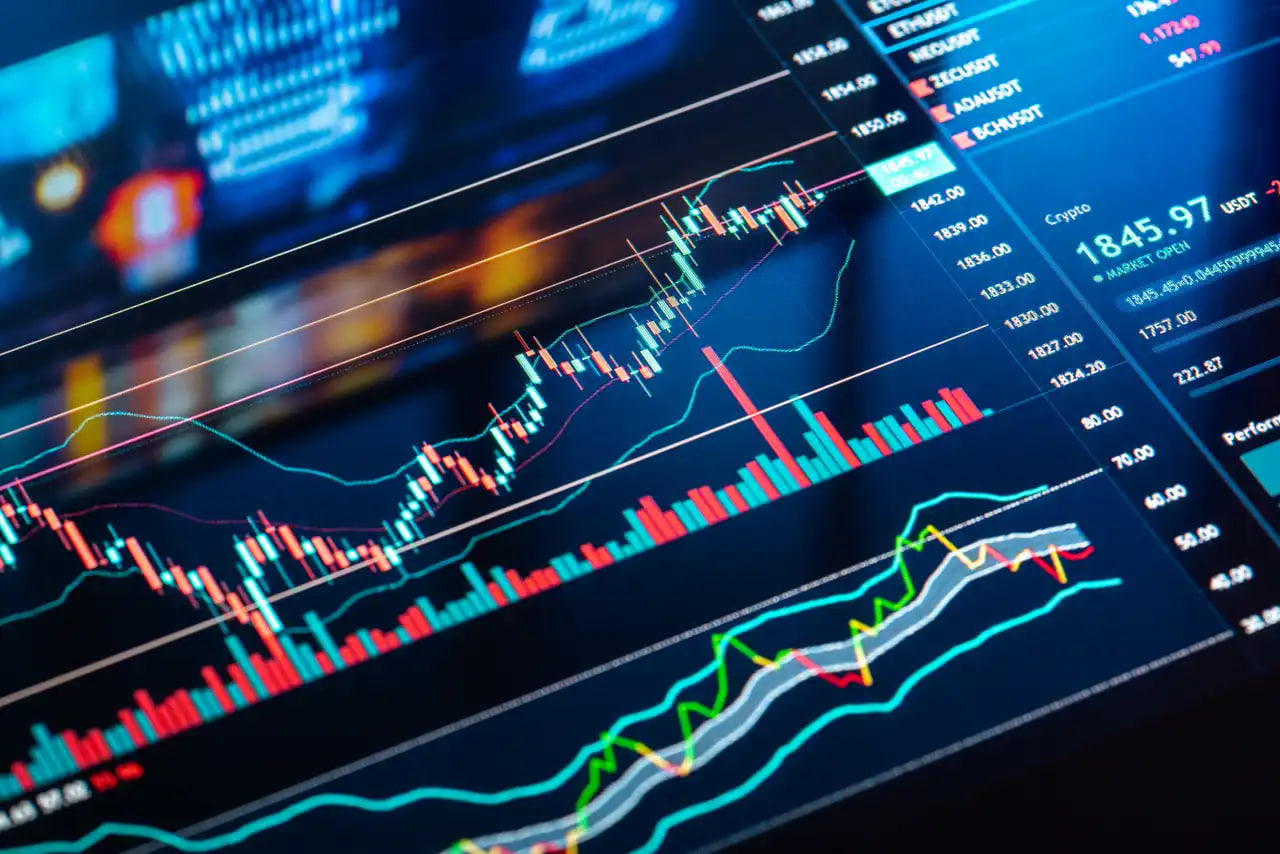Global Market Recap: A Rollercoaster Week for Stocks, Tech, and More!
Meta Description: Dive into a comprehensive analysis of the global market's recent performance, including detailed insights into US stocks (Dow Jones, S&P 500, Nasdaq), tech giants (Apple, Amazon, Nvidia), European markets, commodities (oil, gold), and key global news impacting market trends.
This week's global market action has been, to put it mildly, a wild ride. From the unexpected whimper of the US non-farm payroll report to the seismic shift in Botswana's political landscape, it’s been a week of surprises, leaving investors scratching their heads and analysts scrambling for explanations. We've witnessed dramatic swings in tech stocks, a surprisingly strong performance from some unexpected sectors, and enough geopolitical drama to fuel a dozen conspiracy theories. This isn't your grandpappy's stock market; it's fast-paced, unpredictable, and frankly, thrilling. Buckle up, because this detailed market recap will take you through all the twists and turns, providing insights that go beyond the headlines. We'll dissect the numbers, explore the underlying trends, and offer our expert perspective on what it all means for you. Whether you're a seasoned investor or a curious novice, we’ll arm you with the knowledge and context you need to navigate the ever-changing world of finance. We'll unravel the mysteries behind the recent market moves, examining the performances of major indices, charting the trajectories of influential tech companies, and contextualizing these events within the larger global economic and political landscape. It's a deep dive into the data, but told with a human touch that makes it both informative and engaging. Prepare for a rollercoaster of information—but fear not, we're here to guide you through it all!
US Stock Market Performance: A Tale of Two Halves
The US stock market displayed a rather schizophrenic personality this week. While Monday saw a robust rally across the board – with the Dow Jones Industrial Average (DJIA) soaring by 288.73 points (0.69%), the S&P 500 gaining 23.35 points (0.41%), and the Nasdaq Composite adding 144.77 points (0.80%) – the rest of the week proved less cheerful. The week ended with the Dow down a slight 0.15%, the S&P 500 down 1.37%, and the Nasdaq slumping by a more significant 1.50%. This volatility underscores a key theme: uncertainty dominates the current market environment.
What fueled this initial surge? Part of the answer lies in the performance of individual stocks. Amazon, for instance, saw its share price jump over 6% thanks to stronger-than-expected earnings, driven by robust growth in its cloud computing (AWS) and advertising segments. This highlighted the resilience of certain sectors even amidst broader economic headwinds. Microsoft also saw modest gains, while other tech giants like Netflix and Alphabet (Google) showed slight positive movement. However, Apple took a hit, falling over 1%, and Meta experienced a minor decline. This mixed bag within the tech sector isn't atypical; different companies are reacting to market forces in their own unique ways.
The semiconductor sector displayed its usual volatility. Intel surged nearly 8%, exceeding earnings expectations and offering a revenue outlook that surpassed analyst predictions. Nvidia also experienced a respectable increase of almost 2%, with other chipmakers like TSMC, Qualcomm, Texas Instruments, and ASML following suit. However, AMD's performance was a stark contrast, plunging over 10% and suffering a nearly 45% drop for the week – the worst weekly performance in its history. This dramatic fall followed the resignation of its auditing firm, Ernst & Young (EY), during the audit process, sparking concerns about potential delisting or suspension. This situation underscores the importance of transparency and the impact of unexpected regulatory developments on stock prices.
Globalstar, a low-earth orbit satellite communications company, experienced a meteoric rise of over 30% after announcing a $1.5 billion investment commitment from Apple. This substantial investment, involving both direct funding and service purchase commitments, demonstrates Apple's growing interest in satellite technology and its potential to disrupt the telecommunications sector.
Clean energy stocks also saw a general uptick, with Plug Power, Arcus Solar, and First Solar all experiencing increases exceeding 6%, while others like Daqo New Energy and JinkoSolar saw gains above 3%. Sunrun also saw a modest increase of over 2%. This sector’s relative strength might reflect an increasing investor focus on sustainability and the long-term growth potential of renewable energy technologies.
The performance of Chinese ADRs (American Depositary Receipts) was more mixed, with the Nasdaq Golden Dragon China Index closing up 0.10%. XPeng Motors saw gains exceeding 2%, while Li Auto saw a slight increase. NIO remained relatively flat, but iQIYI experienced a significant drop of over 5%, and other major players like NetEase, Baidu, and Alibaba saw modest declines. The performance of these stocks reflects the ongoing complexities and uncertainties surrounding the Chinese economy and its regulatory environment.
European Stock Markets: A Modest but Positive Showing
European markets mirrored the initial positivity of the US, with all three major indices – the FTSE 100, CAC 40, and DAX – registering gains. The FTSE 100 closed at 8177.15 points, up 67.05 points (0.83%), while the CAC 40 reached 7409.11 points, a 58.74-point increase (0.80%). The DAX ended the day at 19254.97 points, up 177.43 points (0.93%). This suggests a degree of global synchronicity in market sentiment, at least for that particular day. However, further analysis would be needed to determine whether this trend would persist.
Commodity Markets: Oil Up, Gold Down
International oil prices saw a modest increase. The price of December light sweet crude oil futures closed at $69.49 per barrel, up 23 cents (0.33%) on the NYMEX. Similarly, Brent crude futures for January 2025 delivery rose 29 cents (0.40%) to $73.10 per barrel. Meanwhile, COMEX gold futures took a slight dip, closing down $0.10 per ounce (0.004%) at $2749.20 per ounce. The contrasting movements in oil and gold reflect the complexity of factors affecting these commodities and the different investor sentiment towards them.
Global News Impacting Markets: A Week of Headlines
The week was full of significant global news events that undoubtedly influenced market sentiment. The underwhelming US non-farm payroll report, showing only 12,000 new jobs added in October (a significant miss compared to expectations of 105,000), sent ripples through the financial world. This surprisingly weak jobs report strengthened expectations of further interest rate cuts by the Federal Reserve, a development that could impact bond yields and broader market performance.
The ongoing geopolitical tensions, particularly the war in Ukraine and the political situation in Botswana, also played a role. Ukrainian President Zelensky's reaffirmation that Ukraine would not cede territory, regardless of the outcome of the US election, underlined the persistence of the conflict and its potential for further market instability. The unexpected election victory of the opposition coalition in Botswana, a significant political shift in a diamond-dependent nation, highlights the complexities of global political developments and their potential economic consequences.
Other news impacting markets included the announcement that Nvidia and Sherwin-Williams (SHW) would be joining the Dow Jones Industrial Average, replacing Intel and Dow Inc., respectively. This reflects a shift in the index's weighting towards the semiconductor sector and materials industries. The news about Apple’s significant investment in Globalstar further underscored the growing interest in the satellite internet sector and the potential for disruption in the telecommunications industry. Similarly, the developments in the pharmaceutical sector, such as the positive results from trials of semaglutide for liver disease, can have significant implications for the healthcare market.
Frequently Asked Questions (FAQ)
Q1: What caused the volatility in the US stock market this week?
A1: The volatility stems from a confluence of factors, including the weaker-than-expected US non-farm payroll report, ongoing geopolitical uncertainties, and the significant swings in individual stocks like AMD and Globalstar. Each of these events is interconnected – one’s impact reverberates across the market.
Q2: How significant is the AMD stock drop?
A2: The sheer magnitude (over 10% in a single day and nearly 45% for the week) of AMD's decline is highly significant, raising serious concerns about its future prospects and the potential for wider implications for the semiconductor sector. The resignation of its auditor is a huge red flag.
Q3: What does the Globalstar-Apple partnership mean for the future of satellite technology?
A3: This partnership suggests a significant acceleration in the adoption and development of satellite-based communication technologies, potentially disrupting existing telecommunication infrastructure.
Q4: What is the significance of the non-farm payroll report?
A4: The weak non-farm payroll report significantly increases the likelihood of further interest rate cuts by the Federal Reserve, potentially leading to a further weakening of the dollar and affecting global capital flows.
Q5: How did the political developments in Botswana impact the diamond market?
A5: The change in government in Botswana, heavily reliant on diamond mining, could lead to shifts in mining policies and regulations, potentially impacting diamond prices in the global market.
Q6: What should investors do in this volatile market environment?
A6: Investors should adopt a cautious approach, diversifying their portfolios and carefully assessing the risks associated with individual stocks and sectors. A long-term perspective and a well-defined investment strategy are crucial during times of uncertainty.
Conclusion
This week's global market performance highlighted the dynamic and interconnected nature of the global economy. Unexpected news events and individual company performance significantly impact market sentiment. While some sectors, like clean energy and certain segments of technology, demonstrated resilience, others experienced significant setbacks. The ongoing geopolitical uncertainties and economic headwinds contribute to the overall market volatility. As investors, it’s vital to stay informed, analyze market trends, and make well-informed decisions to navigate these challenging times. Remember: stay informed, stay adaptable, and stay invested (but with a keen eye on risk management!).



